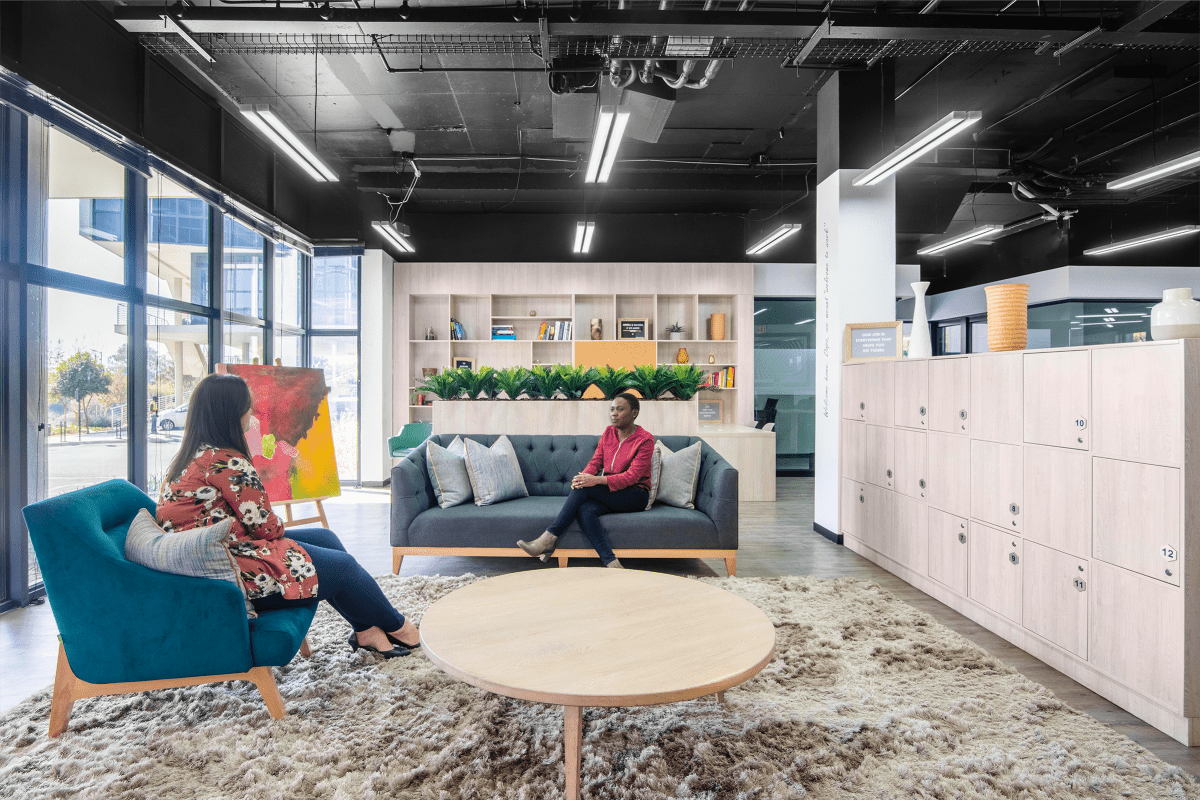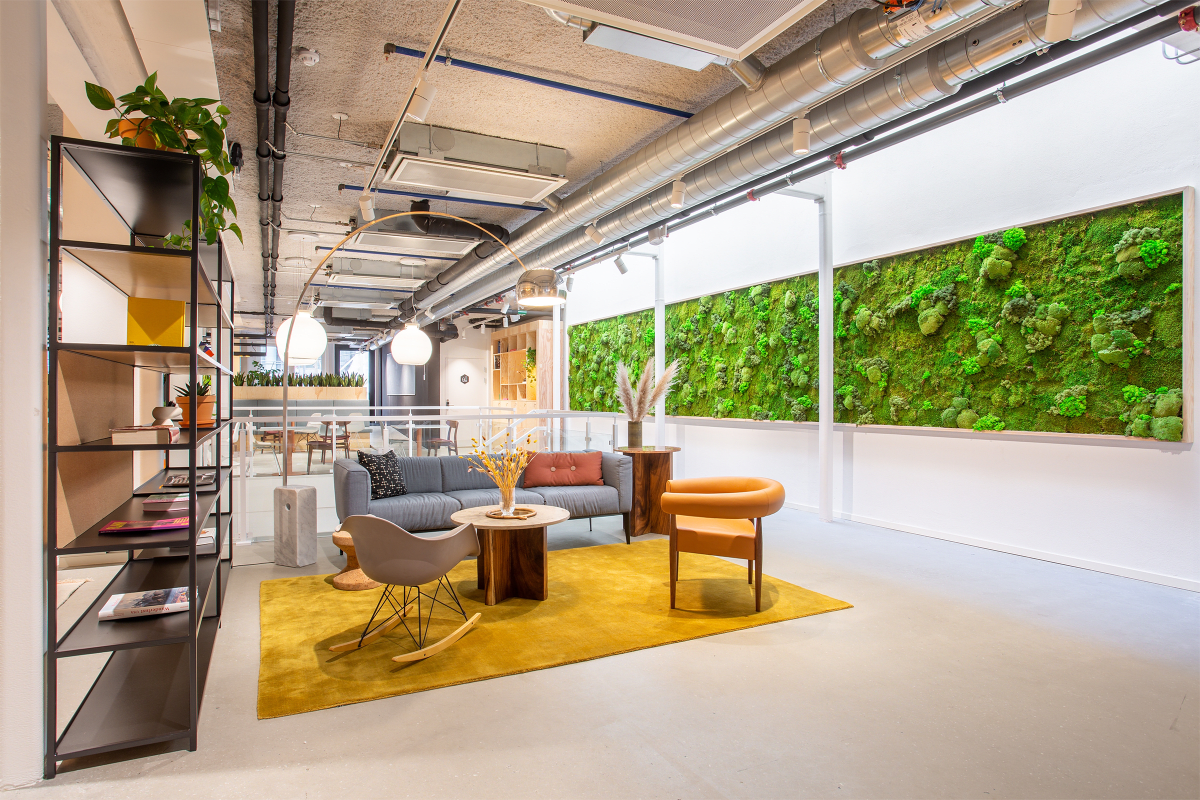Hybrid work is growing across South Africa. As the opening of nine new workspaces takes IWG’s total in the country to over 70, what opportunities will be created when more workers in the region can enjoy the benefits of flexible working?
As the growth of technology shapes a so-called ‘Fourth industrial Revolution’ across South Africa, businesses have more work hubs and real estate options than ever, thanks to the opening of nine new IWG workspaces across the country.
This speaks to a wider pattern across Africa and indeed the world, whereby people and businesses look set to benefit from investment in tech and new flexible ways of working. Specifically, these trends are creating a growing number of opportunities for building owners and franchisees, who can turn property into more profitable real estate that supports remote employees, dispersed businesses and the changing world of work.
Opening throughout 2023, these new offices take the total number of IWG spaces in South Africa to over 70 and ensure the company’s momentum in the country continues, following a 15% increase in IWG workspaces during 2022. This huge expansion includes two new spaces opening in Pretoria, two in Johannesburg, and one each in Nelspruit, Port Elizabeth, Middelburg, Witbank and George. The latter three are new dots on the map for IWG, underscoring its commitment to expanding its network across brand new territories, from major cities to the suburbs.
In the country’s administrative capital of Pretoria, where the attractive architecture is a juxtaposition of colonial-era and high-rise buildings, the new locations will be situated at The Boardwalk, where a Regus centre is opening, and The Village Mall, which will host an HQ workspace.
A world of opportunity
Joanne Bushell, Managing Director South Africa and North Africa for IWG, believes that hybrid work is opening up a world of opportunity. “It gives us a future – here in Africa and across the globe – where companies can attract and retain the best talent, productivity and profits can be boosted, carbon emissions will fall and people and communities will thrive as investment soars,” she comments.
Importantly, when employees can work flexibly from shared office space, they don’t have to saddle the cost of energy expenses at home – particularly significant given South Africa’s power crisis.
“In cases where a company has given up their physical premises and allowed employees to work fully remotely, we are seeing a trend of employers paying for their employees to work from coworking spaces with generators or other continued power supply sources,” Bushell explains.
“This enables employees to benefit from the uninterrupted power supply they could access at an office while retaining the flexibility of their current working arrangement,” she adds. “We are seeing employees flock to our flexible workspaces to use our set-up that is designed to maintain power through load shedding. These centres offer much more than just office tools and supplies. They provide a service that improves how people live, and the strategy to position them in suburban centres now provides the basis for a simpler work-life balance.”
As a consequence, it’s little wonder that demand for flexible workspaces is increasing – creating a growing market for building owners and franchisees to capitalise on.
Economic benefit
While employees are sold on the benefits of hybrid – a recent IWG survey found that 72% would prefer hybrid even if going into a dedicated company office five days a week meant earning more money – the benefits go far beyond the individual level.
According to the World Economic Forum (WEF), Africa stands to benefit in a major way from what’s being termed the ‘Fourth Industrial Revolution’ – a rapid switch to technology and connectivity.
“We have already seen significant technological investment in its major cities, including increased access to mobile broadband and fibre-optic cable connections to households,” says the WEF. “This, combined with the rapid spread of low-cost smartphones and tablets, has enabled millions of Africans to connect for the first time. And as the Fourth Industrial Revolution unfolds, Africa is poised to develop new working patterns.”
Interestingly, the pace of change is such that some African countries may fast track its journey to widespread hybrid working, just as mobile phone technology has allowed some parts of the world to skip landline development altogether.
With a fast-growing entrepreneurship scene and the increasing prevalence of online platform work, hybrid makes sense for Africa, where urban working patterns still need more infrastructure, but where there’s a geographically diverse, work-ready population and solid mobile communications network.
All this presents a clear opportunity for property brokers, building owners and investors looking to be at the forefront of Africa’s work revolution. With the coworking space market predicted to reach 24 billion USD by 2030, according to market research firm Next Move Strategy, now is the time to make the right partnership and turn empty space into productive flexspaces, tapping into a rapidly growing market.
With 4000+ workspaces in 120+ countries around the world, IWG gives businesses and partners the benefit of a global presence, plus industry expertise and customer understanding. Find out how your business can benefit from hybrid work. Or, if you’re a building owner or franchise investor looking to maximise real estate, learn how you can partner with us to develop a location.






